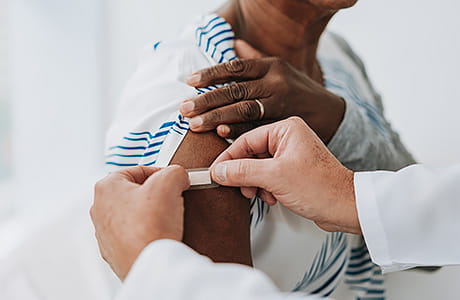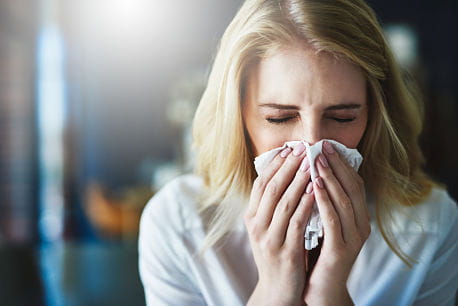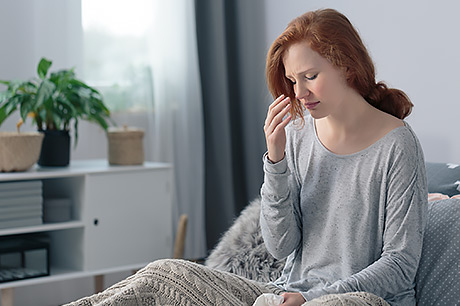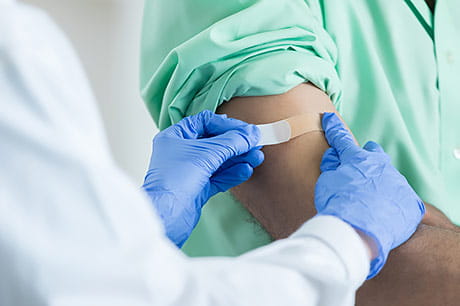Can the COVID-19 vaccine cause infertility?
This myth about the COVID-19 vaccine isn’t based on facts. Here’s what you need to know.
If you’re planning on becoming pregnant soon or in the future, you’ve likely heard a rumor that links the COVID-19 vaccine to infertility. We talked to Jennifer Gell, MD, reproductive endocrinologist and infertility specialist at Geisinger, who helped us debunk this vaccine myth.
There’s a lot of misinformation about the COVID-19 vaccine out there, but this one has many women of childbearing age wondering if the vaccine is safe for them.
The truth? There’s no evidence.
Claims suggest the antibodies to the spike protein of COVID-19, which are produced by the vaccine, may bind to placenta proteins and prevent pregnancy.
But the truth is, there’s no data or evidence that the COVID-19 vaccines cause infertility in women or men.
While pregnant women and those undergoing fertility treatments weren’t included in the vaccine trials, some women became pregnant during them. And no issues with their pregnancies were reported.
“There’s no evidence to support these claims,” says Dr. Gell. “But we do have evidence that COVID-19 can be dangerous, and the risk for severe illness is higher for pregnant women.”
The COVID-19 vaccine is safe for all women
According to the American College of Obstetricians and Gynecologists and the American Society of Reproductive Medicine, it’s recommended that all women — whether pregnant, not pregnant, trying to conceive or pursuing fertility treatments — get the COVID-19 vaccine when it’s available to them.
“The mRNA vaccine doesn’t include the live virus,” explains Dr. Gell. “And these types of vaccines are considered safe for pregnant women and those undergoing fertility treatments.”
Getting vaccinated is a personal decision
If you’re still on the fence, Dr. Gell suggests considering the risks and benefits. “For many, the risk of getting COVID-19 is much higher than potential risks that may come with the vaccine,” she says.
Wondering about the COVID-19 vaccine’s safety and efficacy? Dr. Gell recommends sticking with scientific data from credible sources, like the CDC.
It’s also a good idea to discuss getting the vaccine with your healthcare provider. They can provide information on the risks, benefits and any potential COVID-19 vaccine side effects — to help you make the best decision for you.
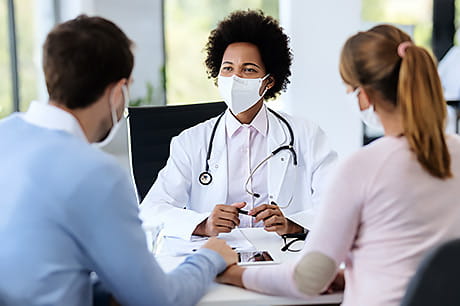
Telemedicine video visits
See your doctor from the comfort of home — from routine care to specialty care
Get virtual care nowCOVID-19 updates: Visit Geisinger's Coronavirus Resource Center for the latest information and helpful resources.

